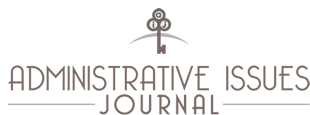
Abstract
Prior to 2009, a mid-sized public institution in the southeast had a faculty-driven honor policy characterized by little education about the policy and no tracking of repeat offenders. An updated code, implemented in August of 2009, required that students sign an honor pledge, created a formal student honor board, and developed a process to track and hold accountable, repeat offenders. Self-reported data on faculty vigilance to detect and punish cheating is collected both prior to and after a change in the honor code at a mid-sized public institution in the southeast. We find that, at the time of the first survey, full professors and faculty with a longer duration of employment were more likely to claim vigilance in cheating detection and harshness in punishing cheaters than newer, untenured faculty. The relationship between these factors and detection and harshness diminished when the honor code was enhanced.
Recommended Citation
Burrus, Jr., Robert T.; Jones, Adam T.; Sackley, William H.; and Walker, Michael
(2015)
"Faculty Observables and Self-Reported Responsiveness to Academic Dishonesty,"
Administrative Issues Journal: Vol. 5:
Iss.
1, Article 8.
Available at:
https://dc.swosu.edu/aij/vol5/iss1/8
Included in
Health and Medical Administration Commons, Higher Education Administration Commons, Public Administration Commons
Please consider contributing an article to Administrative Issues Journal, our submission policy: http://www.swosu.edu/academics/aij/guidelines.aspx
